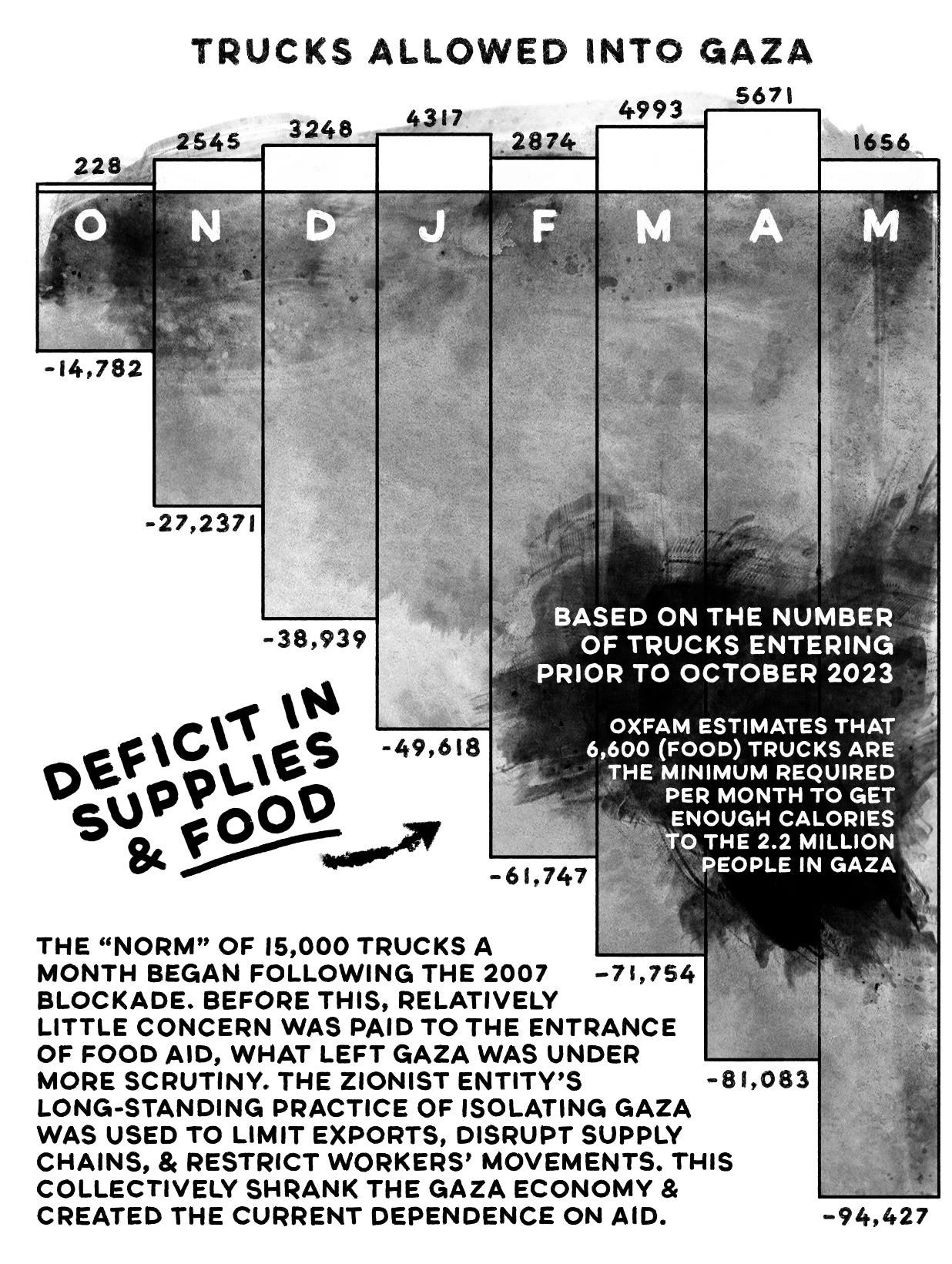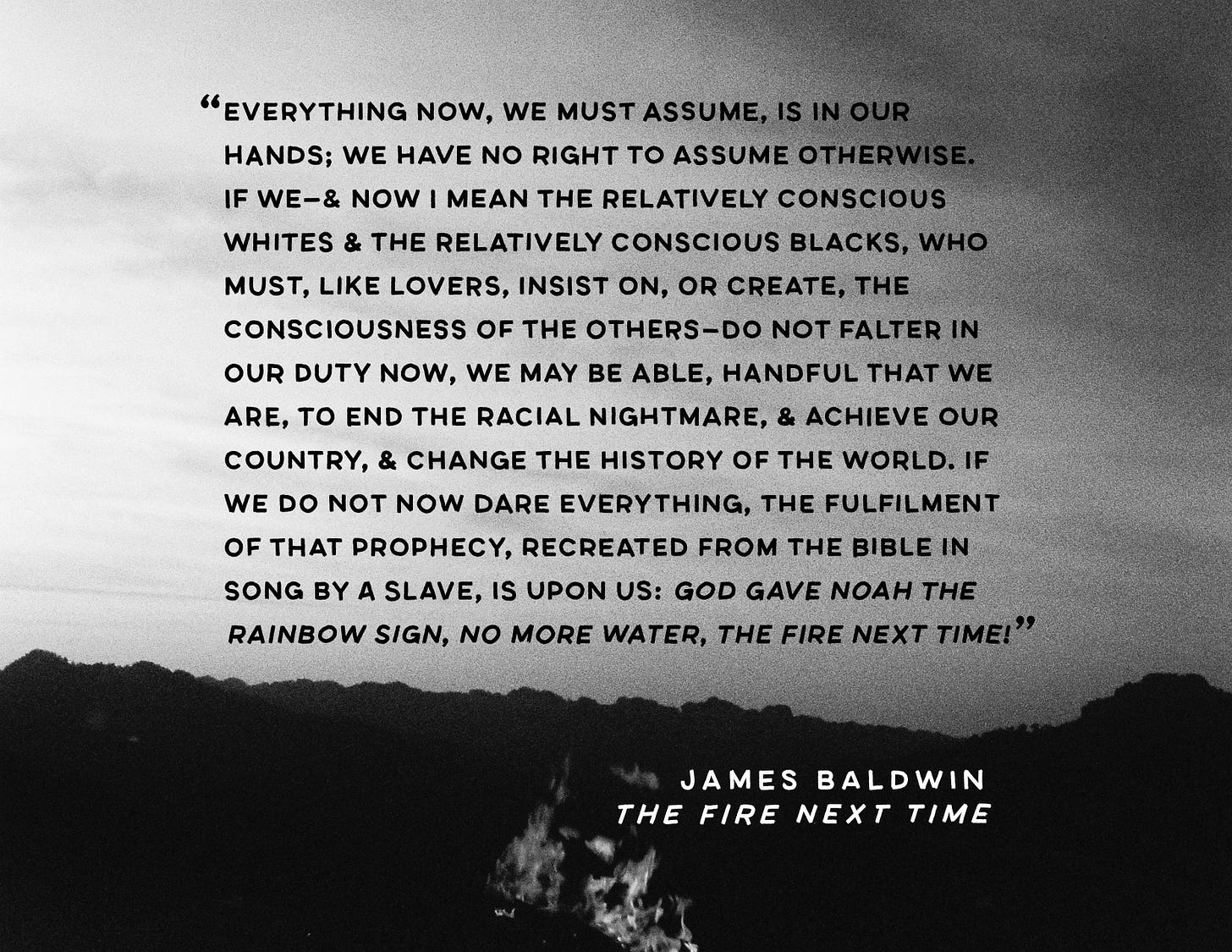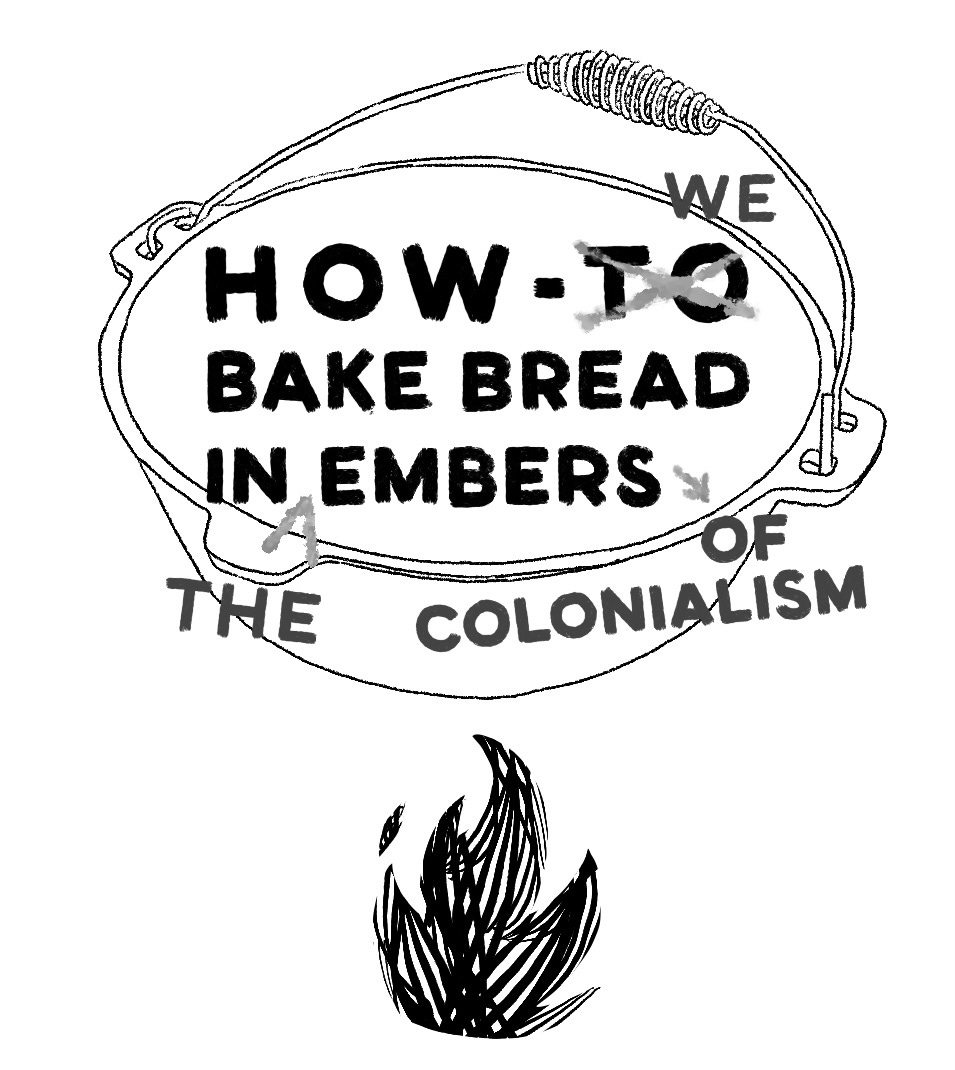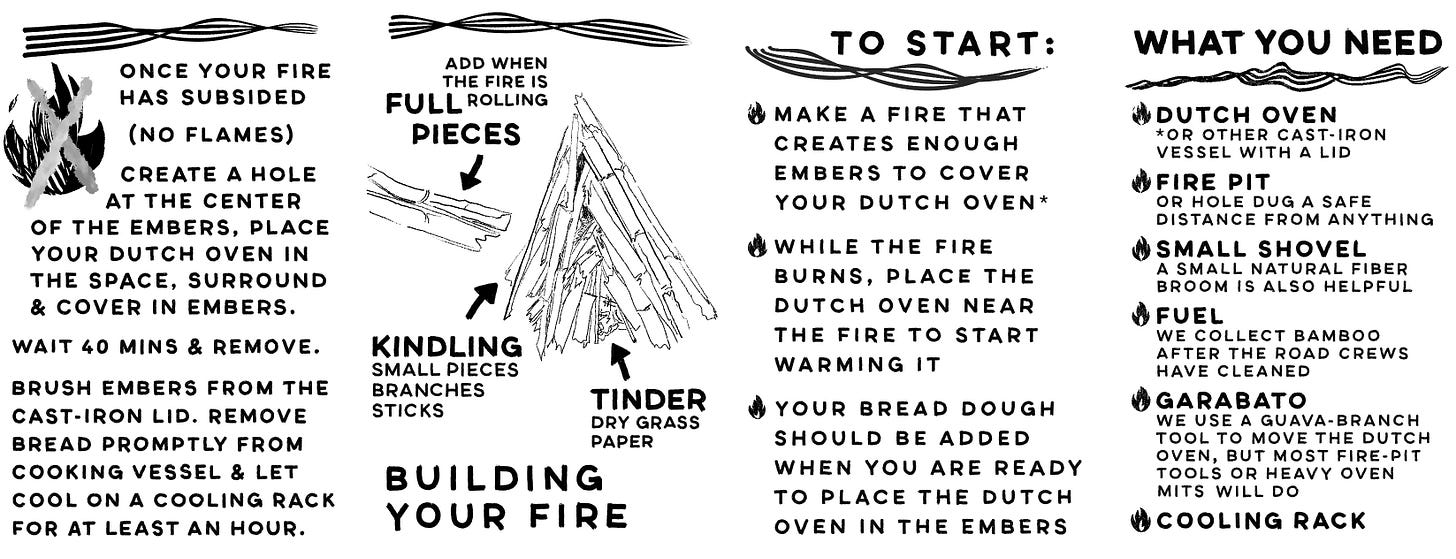Next month we’re tabling at the Ponce Fermentation Festival—on July 6th & 7th. We created a new pair of zines for the event. After the festival, we’ll release them on the farm store, but our paid subscribers get early access to the digital (printable!) versions of the zines at the end of this email.

As we enter summer, during the hottest handful of years on record, we are sharing some practical tools for making bread; but we can’t without first pointing to how famine is human-made.
We live in a moment where same-day delivery exists, yet people face starvation—in Afghanistan, Congo, Haiti, Ethiopia, Myanmar, Somalia, Sudan, Syria, Yemen—but the genocide unfolding in Gaza is unique in its abundance of available data and evidence.1
Oxfam estimates that 6,600 trucks of food are the minimum required per month to get enough calories to the 2.2 million people in Gaza. Based on the number of trucks entering prior to October 2023, and the number of trucks allowed through the Rafah and Karem Abu Salam crossings from October 2023 to May 2024, we estimate a deficit of over 100,000 trucks as of July 2024.2
The “norm” of 15,000 trucks a month began following the 2007 blockade. Before this, relatively little concern was paid to the entrance of food aid, as what left Gaza was under more scrutiny. The Zionist entity’s long-standing practice of isolating Gaza was used to limit exports, disrupt supply chains, and restrict workers’ movements. This collectively shrank the Gaza economy and created the current dependence on aid.3

Why the Zionist entity targets bakeries
Bakeries were among the first targets of Israeli air strikes, quickly exacerbating the food crisis and the dependency on emergency aid. Of the nearly 100 bakeries that operated in Gaza prior to October 2023, only FIVE were still functioning by May 2024, with the World Food Program running the majority. Before the invasion (of Gaza, by the Zionist entity), UNRWA supported more than half of Gaza’s bakeries, providing a degree of stability through daily bread, as well as vital schools, emergency shelters, and medical centers.4
The Zionist entity aims to dismantle UNRWA because of its responsibility to Palestinian refugees, preferring instead to work with agencies focused strictly on emergency food relief like the World Food Program or World Central Kitchen. Since Israel accused UNRWA of terrorism and the US and other Israeli Allies stopped funding their operations, UNRWA no longer resources any bakeries.56
“Destroying UNRWA, Israel believes, will strip away the legal protection and international focus on the right of return of Palestinian refugees. Contrary to international law, Israel bars the return of millions of Palestinian refugees and their descendants ethnically cleansed from their homes solely on the racist grounds that they are not Jews.” -Ali Abunimah, The Electronic Intifada7

The politics of sourdough
For the first months of COVID lockdowns, sourdough had a renaissance in the kitchens of people with privilege and remote work opportunities. Homemade sourdough was solidified as a wealthy person’s food, a sign of excess, when in fact it is the cheapest wheat bread possible and should be the people’s bread.
Wheat requires the collective. As opposed to a small lot of tomatoes, a small lot of wheat doesn’t produce much, especially if processed alone. Collectives have long developed around the shared labor of planting, threshing, milling, and baking daily breads of wheat, corn, teff, rice, or other similar grasses. Even where wheat is not locally grown, bread is a lifeline and baking bread is a form of community service.

Colonial-ass plants as fuel
Towering clumps of bamboo can take over huge swaths of land and can be near impossible to remove. When restoration projects plant bamboo on degraded lands, lands stripped by colonial exploitation, they are operating within a long colonial logic of conservation projects that require the current caretakers be pushed out. Bamboo, with its high potential for carbon sequestration, is creating new frontline communities, increasingly dispossessed by colonial plants, in the name of saving the planet.8
Puerto Rico is covered with tall grasses and bamboos brought over centuries by different colonizers. Left unmanaged, the plants themselves now vigorously colonize and alter every landscape.910
As invasive grasses have replaced native grasses, so too settlers have replaced native people. Paired with barbed wire, settlers used invasive grasses to turn wilderness into private property, assigning land a value that could be used as collateral. The land could then be mortgaged to purchase more property, which once included enslaved people. In what became Latin America, tall African grasses were used to steal land and enslave people stolen from the African continent.1112

We wrote about sourdough bread a year ago in our June 2023 newsletter:
Thanks so much to our paid subscribers! You all make it possible for us to head into town to upload our newsletters. Thanks also to our dear friend
for supporting our latest round of zines. You can as well by choosing the “Fund Our Zines” tab on our farm store:


